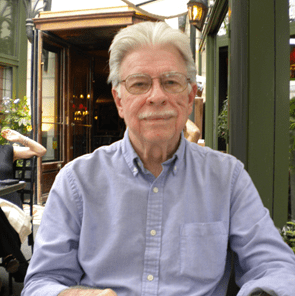I once wrote a poem of medievals,
their two sleeps, two awakenings.
“The first stirring phase came thence in the middle
for the peasant’s night hours did divide.”
Soon, I too, began a midnight phase, a mystical twofold sleep.
During the day my lines were dull and languorous:
“She wrote me daily. I long for her words.”
But, during the mystic hours the verse became:
“Her cursive scripts, her dazzling wit, a few words
each day on the trip.”
During daylight I wrote:
“We did not foresee her deathly malady.”
With my nighttime pen I wrote:
“We did not foresee, did not previse, our
lives existentially fraught.”
My daytime verse was morose:
“There is little time left to read her glowing words.”
At night they were refined:
“For, now we are sure, not long to endure, no pages to share,
the words are not there.”
I wish I had such magic to see her again.
But, she is gone and there is only one line left to write:
“A churchyard stone becomes a home and poets as they do,
they heal and move on.”













